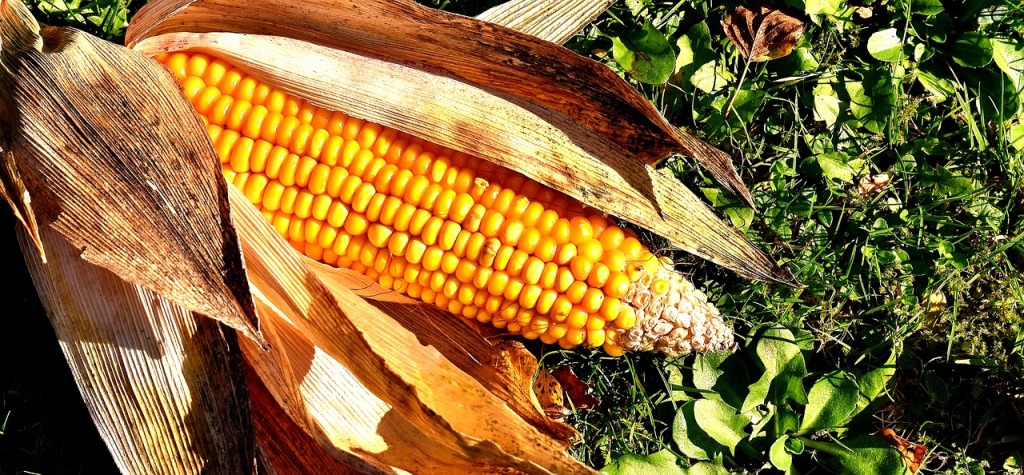The Union of Concerned Scientists, a progressive political science-activism organization, just released a report Tuesday on GE crops and yield. Written by Doug Gurian-Sherman, the new report is titled Failure to Yield. You can read Failure to Yield here, and the press release is here.
Of course, as the title of the report suggests, Gurian-Sherman did not explicitly conclude that GE crops have not decreased yields – he concluded that GE crops did not increase yields significantly. At face value, it seems like a reasonable conclusion, one that follows from my understanding of the GE traits that are currently grown: mostly herbicide tolerance and pest resistance. In the case of herbicide tolerance in corn and soy, Gurian-Sherman concluded that the trait did not increase yields, while progress in plant breeding continues to do so.

Also fairly reasonable-sounding is his conclusion that pest resistance from Bt crops did increase yield slightly – increasing yield by about 3-4% since its introduction in 1996. I have yet to delve into how he makes these determinations, you can expect another post from me on this report down the road. (Especially since Gurian-Sherman has been saying elsewhere that Bt contributed 4-5% – which is it?) But as far as the press release is concerned, it is leaving out crucial information – Bt corn has allowed (slightly) higher yields to be grown with fewer pesticides. That’s the point of a pest resistance trait such as Bt.
A very important point worth mentioning is that Gurian-Sherman only studied two traits in two crops – three combinations in total. This doesn’t support the sweeping conclusion that is made about the future contributions of this technology to yields. In fact, to be exact, the reports findings would lead to the conclusion that herbicide tolerance and Bt traits in corn and soy don’t contribute significantly to yields overall.
And this paragraph in the press release appears to be false:
The biotechnology industry has been promising better yields since the mid-1990s, but Failure to Yield documents that the industry has been carrying out gene field trials to increase yields for 20 years without significant results.
At GMO Pundit, David Tribe saved an article about a yield-increasing biotechnology trait that increases soybean yields by 6 to 7 percent, tested in 56 field environments. This hasn’t been published in a peer-reviewed journal as far as I know, but Gurian-Sherman should have been aware of this – it was published over three months ago.
At the Council for Biotechnology Information’s new BIO convention blog, they posted a few reactions to Failure to Yield. One, by Wayne Parrot at the University of Georgia:
“The report is at odds with the results from the experience of farmers around the world. At the very least, the current biotech crops are preventing yield losses to pests. In the end, it is not just about yield- it is about the ability to practice no-till farming (thus saving fossil fuels and preventing soil erosion); it is about the ability to use less insecticides, it is about the ability to make farming easier and more profitable and sustainable. So even if there were no yield advantage, there are plenty of other reasons to use biotech crops.”
Anyway, take a look at the report and let me know what you think. When I have a little time I’ll give it a thorough read. But it will be interesting to see what people find in the analysis.
To bring it back to the title of this post – I would like to mention how many anti-GE activists claim that genetic engineering has decreased yields. Those same organizations are now clamoring with joy, but if they accept the conclusions of Failure to Yield, they must also accept that genetic engineering did not decrease yields. If the UCS found any hint of that in the literature, you know that would be the headline!
I took a quick look at it. And there were several points where they concede that yield increases were substantial. A couple of times they also toss out in passing that farmer health + enviro benefits might matter, like this:
So they focus on yield, and seem to be irritated that they didn’t get a pony, and downplay other benefits.
Marian Nestle can’t seem to understand why farmers want the technology either, like their personal health might be irrelevant:
http://www.foodpolitics.com/2008/07/latest-stats-on-gm-crops/
They also talk about the Rodale experiments but neglect to mention the 5-year transition, the increased labor (35%) or the reduction in yield due to rotation of a cover crop: “however,
overall production of organic corn is diminished over a multipleyear
period because it is grown less frequently.” (Pimental et al, BioScience 2005). So they are very cagey to explain all sorts of possible hoops they use to describe the GM outputs, but not so forthcoming on that.
Now–I’m all in favor of organic practices. But you can’t treat the data differently than the other data is all I’m sayin’…
It’s not the worst activist report I’ve ever read. It actually has some sourcing. But I haven’t cross-checked them all with their conclusions so that is not my final answer….
Looking forward to your take on it.
LikeLike
Yes I noticed some conciliatory notes here and there, stuff that didn’t really make it into the press release. Thanks for noticing the issue with the Pimentel study – these nitty gritty details are often overlooked in favor of catchy headlines.
Also, wouldn’t it be a 3-year transition to organic?
Yeah, and Marion Nestle didn’t address my comment. Almost forgot about that post!
LikeLike
Yah, that’s the legal transition–but in order to make your yield data look better it takes longer. Apparently.
LikeLike
increased yield or not eventually the use of certain pesticides and farming practices (like monoculture) will leave our planet looking like a green desert. with little left for wildlife.
LikeLike